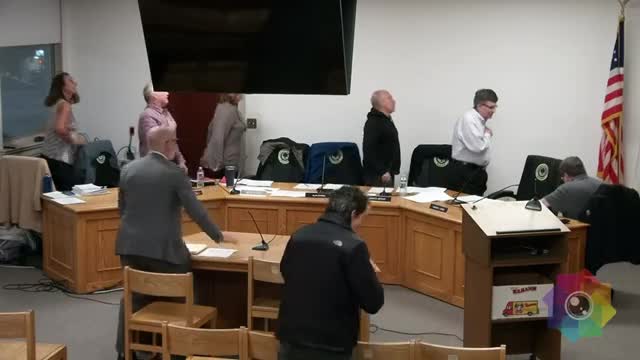Millis planning board recommends ADU bylaw changes, sends amended draft to town meeting
Get AI-powered insights, summaries, and transcripts
Subscribe
Summary
After a public hearing April 8, the Town of Millis Planning Board voted to send a revised accessory dwelling unit (ADU) zoning bylaw to town meeting with two amendments: allow first ADU by right with site-plan review and permit a second ADU only by special permit.
The Town of Millis Planning Board on April 8 closed a public hearing and voted to send a revised accessory dwelling unit (ADU) zoning bylaw to the annual town meeting with two edits that the board said preserve local review while complying with state requirements. Richard Nichols, chair of the Planning Board, made the motion; the vote to forward the article carried on an “Aye” vote.
The proposed warrant article replaces the town’s existing “accessory family unit” wording with an “accessory dwelling unit” definition and aligns Millis’s bylaw with state ADU requirements. The draft sets a 900-square-foot cap for an ADU, makes the first ADU a right in residential zones subject to site-plan review, and preserves limited local control over placement, parking, setbacks and other design details. The board added language clarifying that a second ADU could be allowed only by special permit.
Why it matters: the state requires communities to allow ADUs by right, and many towns are revising zoning to comply while retaining neighborhood protections. The board said the changes aim to expand housing options while avoiding confusing overlapping rules from older bylaw language.
Planning staff and counsel told the board the amendments are largely a template that was customized for Millis after review by town counsel and the Attorney General’s office. “A lot of towns… either didn’t regulate it at all or some towns would just have a single line,” a staff member summarized while explaining the need to reconcile old in-law apartment rules with the new state framework. The discussion repeatedly returned to one practical tradeoff: allow one ADU by right, and give the town a path to permit a second unit under case-by-case special-permit review.
Board members also debated operational details that will appear in the bylaw and in the site-plan checklist. Key provisions discussed at length:
- One ADU by right; a second ADU may be allowed by special permit. A board member proposed adding a single sentence to the draft (A2) stating “a second ADU may be allowed by special permit,” which counsel said is consistent with state guidance. The board approved language instructing staff to prepare that wording for the warrant article.
- Size and grandfathering. Existing in-law apartments permitted under older special permits retain their grandfathered status; they will not automatically be reclassified to the new 900-square-foot ADU standard if they exceed the new cap without a change to their permit or deed restriction.
- Short-term rentals. The draft prohibits ADUs from being used as short-term rentals defined under state law (rentals of 30 days or fewer). Counsel explained the draft uses the state definition, which refers to rentals of 30 days or less, and the bylaw text therefore referred to “less than 31 days.”
- Parking. The board reviewed a proposed rule that would not count tandem parking (cars parked bumper-to-bumper on the same driveway) as meeting required parking for ADUs in many cases. Supporters said the provision protects future occupants and minimizes conflicts between owners and tenants; opponents said it can be onerous in neighborhoods with small driveways and winter street-parking bans. Board members agreed to keep the tandem-parking prohibition as drafted, noting it can be revisited at a future town meeting if needed.
- Nonconforming structures and district limits. The draft allows ADUs as a permitted use in residential districts and as a possible special-permit use in other districts, but the definition remains explicit that an ADU must be accessory to a principal single-family dwelling unit to avoid enabling nonresidential properties to claim ADU status.
- Site-plan review and technical checks. Even where an ADU is permitted by right, the board will require site-plan review focused on a limited set of criteria (parking, setbacks, compatibility, septic/sewer capacity, and similar issues). The board discussed that septic capacity, sewer capacity determinations and wetlands constraints remain separate approvals and are not automatically granted by a planning-board site-plan decision.
Board chair Richard Nichols moved to close the public hearing and to send the article to town meeting with two edits: (1) revise section A to allow ADUs in other districts by special permit, and (2) add an A2 clause allowing a second ADU by special permit by the Planning Board. The motion was seconded and passed on an “Aye” vote.
What’s next: Staff will prepare final warrant language with the two edits and circulate it to the board and town counsel. The complete draft was posted with the town clerk and is available on the Planning Board web page; the board noted any further bylaw changes would require a future town meeting vote.
